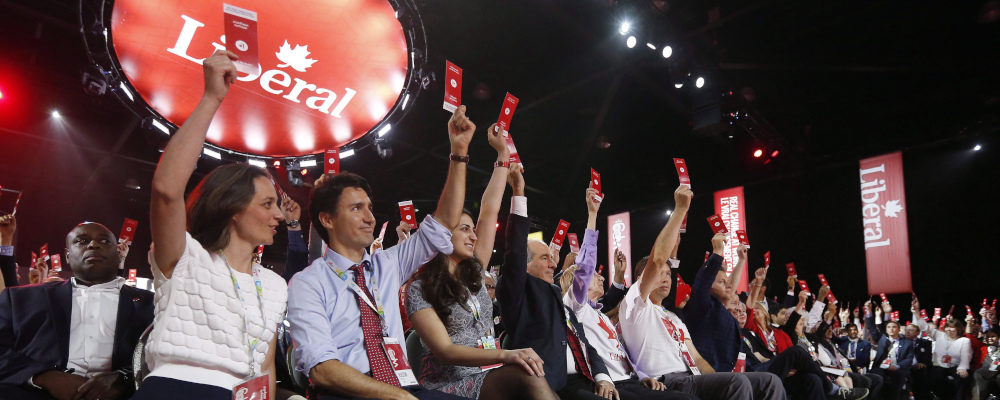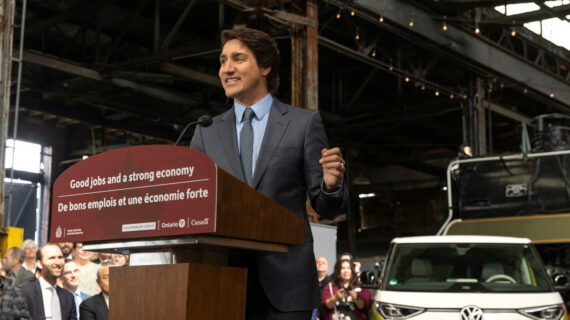“The political parties created democracy and modern democracy is unthinkable save in terms of the parties,” argued the political scientist E.E. Schattschneider 79 years ago.
This argument still by-and-large holds true: trying to imagine democracy in Canada without parties is so disorienting that one hardly knows where to begin. How would Parliament operate without parties to organize and discipline MPs? Relatedly, would this lack of discipline mean that we would have elections every other month? And what would those election campaigns look like without parties to structure electoral competition and present bundles of policies for voters to choose from?
Parties seem indispensable in large-scale modern democracies like Canada. But to recognize this is not to say that parties are doing a particularly good job. To the contrary, widespread disenchantment with the performance and operation of political parties across the democratic world reflects the view that parties are failing to perform their most fundamental functions. The result is, according to political scientists Ingrid van Biezen and Richard Katz, a discomforting paradox: “while parties have come to be seen as the key institutions of representative democracy, they are also perceived to be increasingly incapable of performing those functions which are essential for its healthy functioning.”
One does not need to go far in Canada to find someone willing to give voice to this disenchantment with parties. Research from the Environics Institute for Survey Research shows that parties are the least trusted political institutions in Canada: only 12 percent of respondents to their 2019 survey reported “strong trust” in political parties. Other institutions — the RCMP, elections, the Supreme Court, the justice system, parliament, the prime minister and even the mass media — all enjoyed higher levels of trust.
Disenchantment with Canadian parties is matched by disengagement: despite being ostensibly open organizations, very few Canadians take out memberships or participate in parties. The generally accepted figure is only 2 percent of Canadians are members. In 2013, Statistics Canada asked what organization respondents had been most involved with in the past year, and only 1 percent mentioned political parties.
This reluctance to sign up reflects a kind of sophistication: while members still largely select party candidates via locally organized nomination contests, party leaders are mostly free to shape party policy and in fact often ignore the policy preferences of party members when doing so. Over the past few weeks, we’ve seen members of all three federal parties go to party conventions and vote to approve policy resolutions that their leaders will surely ignore, if not contradict, when crafting their platforms for the next election.
Instead, people often sign up to join parties in order to support a friend, colleague or fellow community member in a hotly contested party nomination race to decide who the party candidate will be in the next election. But once that race is over, a lack of any real policy influence for members means there is little reason to stick around and they accordingly let their memberships lapse. Rather than organizations with vigorous and mobilized long-term membership bases, party memberships in Canada tend to wax and wane in rhythm with the electoral calendar.
Party leaders still yearn to craft their electoral appeals without any interference from pushy party activists
Given this lack of trust in and engagement with parties, it is perhaps a little surprising that Canadians are not rushing to replace partisan MPs with non-aligned independent MPs when they vote. And this presents a puzzle: despite widespread dissatisfaction with parties, very few Canadians vote for independent candidates instead of party-endorsed candidates when they have the option to do so. Indeed, independent MPs have become vanishingly rare in Canadian politics since the 1960s.
This appears to be evidence of Van Biezen and Katz’s paradox: despite Canadians’ disenchantment with parties, those parties nonetheless seem to have a stranglehold on who and who does not get elected.
The fact that Canadians continue to vote overwhelmingly for party-endorsed candidates also suggests the relationship between them and their parties is not irreconcilably broken. Indeed, there is a great deal that parties could do to rebuild trust and encourage engagement.
For starters, parties could express some degree of policy consistency over time rather than veering back and forth across the ideological spectrum. It is little wonder Canadians are cynical when (to use an unkind epithet) tweedle-dee-and-tweedle-dumb parties formulate what they believe in order to win elections rather than win elections in order to implement what they believe. Parties should provide responsible and consistent ideological alternatives to one another, and then do Canadians the courtesy of following through on their promises once elected.
Parties could also provide meaningful opportunities for members and activists to have a real say in the development of party policy. Member-driven policy with teeth would bind the party leader, forcing him or her to develop election platforms that grapple with rather than ignore the wishes of party members. This might make the party leader’s job a little tougher, but it would give Canadians who care about ideas a reason to both join and participate in parties.
This may be a bit much for Canada’s big parties — especially the Liberal Party — to swallow given their long-standing practice of politics. The Liberal Party is a fine example of a brokerage party that has never been ideologically consistent, and the Conservative Party has oftentimes tried unsuccessfully to out-broker the Liberals. Party leaders still yearn to craft their electoral appeals to Canadians without any interference from pushy party activists.
But this way of practicing politics in Canada has helped to produce the endemic lack of trust in political parties we see today. There is no doubt that parties are necessary for democracy in Canada to function. But the parties could and should do more to give Canadians reasons to trust them.




